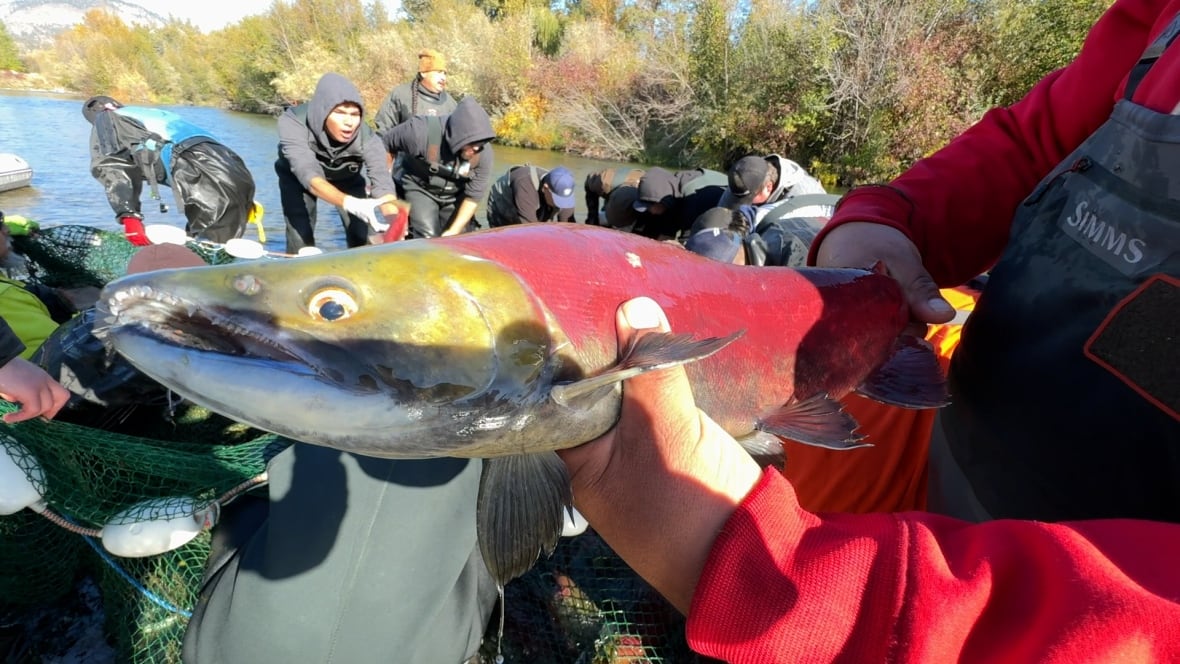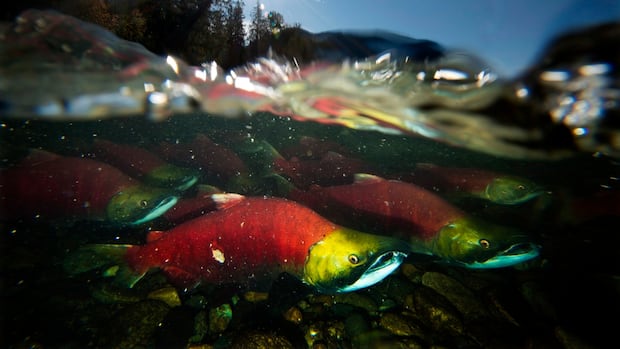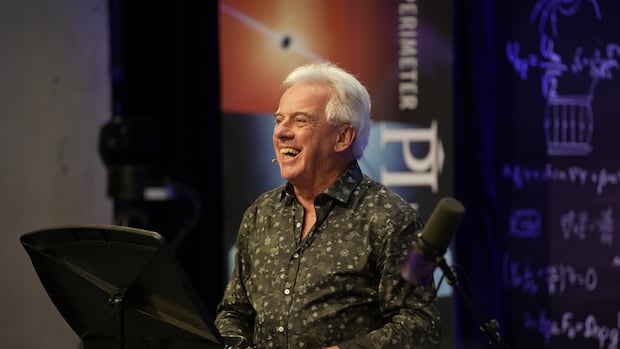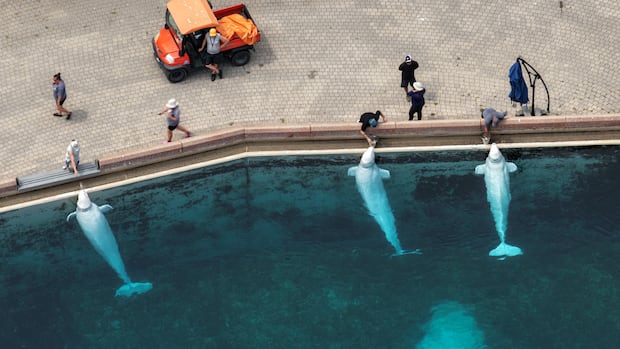Guy Johnston is out fishing near the B.C. border with southeast Alaska.
Over the phone, he tells CBC News that fishermen know to expect challenging seasons.
“That’s understood all around the world, and coasts everywhere [with] fishing communities — there are going to be hard times,” he said.
“The flip side to that is what we’re seeing now, when there’s a real bounty coming in, it’s a real chance to celebrate.”
Johnston, who has been fishing for 50 years, is one of many celebrating this year’s Fraser River sockeye salmon returns and its estimated 6.3 million fish.
That’s up from the 2.3 million pre-season estimate, and over 13 times last year’s estimated 474,000 fish, according to figures from the Pacific Salmon Commission and Fisheries and Oceans Canada (DFO).
“These good returns, it means for us as fishermen … we replenish our our economics,” says Johnston, who’s also the secretary-treasurer of the United Fishermen and Allied Workers’ Union (UFAWU-Unifor).
“It means in our communities … people are going to be eating this beautiful protein.”
The data was shared by UFAWU-Unifor earlier this week, on behalf of independent fish harvesters, representatives with the Area Harvest Committee, and organizations including the Pacific Salmon Commission, Fraser River Panel, B.C. Seafood Alliance, and T. Buck Suzuki Foundation.
The group attributes the increase, in part, to efforts by First Nations, commercial harvesters, and the DFO to rebuild salmon stocks and habitats over the years.
Bob Chamberlin, chair of the First Nation Wild Salmon Alliance, points to the removal of open-net pen fish farms in the Discovery Islands.

The farms have long been the subject of debate, with environmental groups and some First Nations saying they’re linked to the transfer of disease to wild salmon. Work to phase them out began in 2020, with over a dozen farms closed since then. Some open-net fish farms continue to operate outside of the Discovery Islands, however, with the B.C. government delaying their closures from 2025 to 2029.
“I don’t want government to view this, as you know, to wash their hands and the job is done,” Chamberlin says of the salmon increase this year.
“This is an opportunity to build, to realize the importance of wild salmon to British Columbians and First Nations and the environment, and begin to chart a course of nation-building with this resource because the benefits are so far-reaching.”
In a statement to CBC News, DFO says while it’s “not possible to attribute the scale of the returns to any single factor, it is certain that this large return would not have occurred” without the efforts of First Nations and the federal and provincial governments to restore the fish passage at the Big Bar landslide.
The landslide, which occurred north of Lillooet, B.C., in June 2019 but wasn’t discovered until June the following year, blocked the passage of migrating Fraser River salmon — preventing thousands of fish from reaching the upstream waterways in which they were born, and which they must reach in order to spawn.
The DFO says that investment in hatchery infrastructure has allowed for the release of thousands more juvenile sockeye salmon to help rebuild stocks after the slide and that this year’s run marks “the first brood year to return” after the fish passage was restored in 2021.
Given the abundance, DFO says that First Nations fisheries for food, social, and ceremonial purposes are given first priority to fish, and further opportunities for the Nations, as well as commercial and recreational fisheries, will be assessed as more information on the salmon returns is collected.
Christina Burridge, executive director of the B.C. Seafood Alliance, says it’s important to harvest the salmon to avoid overcrowding on the spawning grounds.
“First of all, you’re wasting protein … And secondly, that just has a really negative cycle whereby the fish can’t find enough spawning grounds and so many of them die without spawning,” she said.
Meanwhile, fisherman Johnston says that in Cowichan Bay, where he lives during the off-season, people are celebrating the bounty.
“You see it in my community. You see it all up and down the coast. There’s real celebration.”







